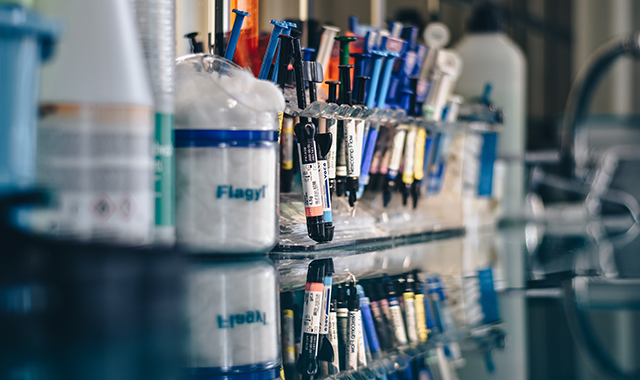Dental Composites In Plymouth
WHAT ARE DENTAL COMPOSITES?
The composite or so-called composite resins are dental materials used for fillings (plugging cavities ) or stoppings aesthetic restorations. It is one of the most used materials currently in the field of Dentistry.
COMPONENTS OF DENTAL COMPOSITES
Dental composites are made up of an organic matrix and an inorganic material that acts as a mineral filler.
The organic matrix is usually BIS-GMA (bisphenol glycidyl methacrylate) or UDMA (methacrylate urethane). It is made up of monomers that are attached through a polymerization reaction. This means that when halogen light is applied on the resin, the monomers are joined to form a polymer.
The filler particles are usually minerals such as quartz, zirconite and aluminium silicates. Filler particles provide hardness, strength and decrease dough shrinkage when hardening.
Dental composites can be classified in different ways. Depending on the applied polymerization system, they can be self-curing, light-curing and dual. Depending on the use made by the dentist, they are divided into filling or cementation dental composites. But the most used classification is according to the size of the filler particles: macroparticles, microparticles and hybrids.
Its properties include good resistance to thermal changes and elasticity similar to the tooth, little shrinkage to polymerization, good radiopacity and high resistance to wear.

UTILITY OF COMPOSITE RESINS
Composite resins or composites are the most widely used materials for aesthetic reconstructions of anterior teeth (the most frontal and visible). They have also become the material of choice for fillings (cover cavities) or fillings of posterior teeth.
They can be used both indirect restorations, made directly in the patient’s mouth, and in indirect restorations, that is, prepared outside the oral cavity.
It is a material that is used to seek an improvement both in dental aesthetics as well as in oral functionality. One of the main advantages is that it is a very conservative material since it does not require tooth grinding and provides exquisite aesthetics. It is also a moldable material and mimics the natural colour of the rest of the dentition. Thus, it has a very satisfactory result.
ADVANTAGES OF DENTAL RESTORATIONS USING COMPOSITE
Composite or composite resins stand out for being a biocompatible material and for the simplicity of their use when performing reconstructions made with this material. They can be carried out in a single session.
If the direct technique of composite resins is used, it is as easy as treating the tooth directly in a single clinical session, so we save on taking impressions and other work done by the dental laboratory. Thus, we save time, and the cost of restorations is economical compared to other materials.
On the other hand, composite restorations are also indicated for other situations beyond dental caries, such as dental fractures, chipped teeth repair, composite veneers, reconstructions of worn teeth, closure of diastemas (spaces between the teeth), as well as to increase the edges of the teeth.
Our dental clinic Smail Care in Plymouth, have highly qualified specialists in dental composites. This resin material has more uses thanks to its good aesthetic, biocompatible and economic properties, making it an increasingly popular material for its excellent results.


